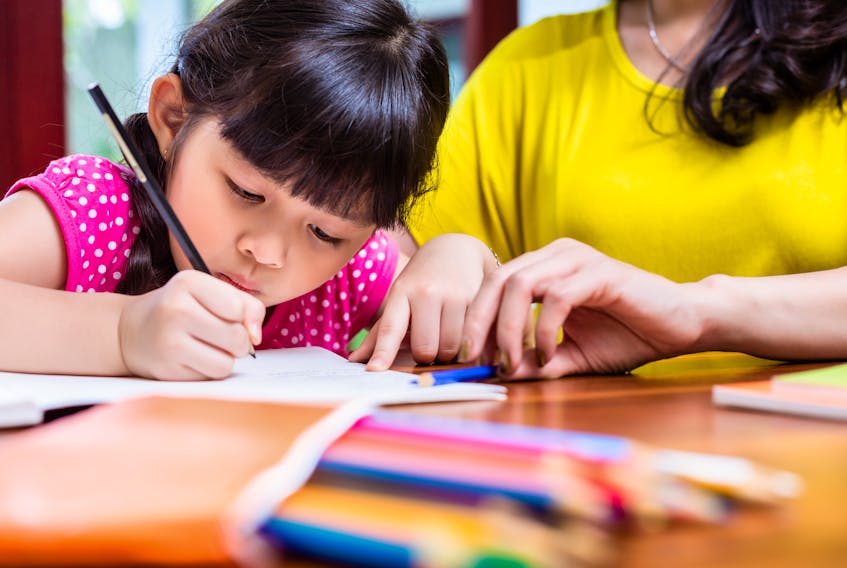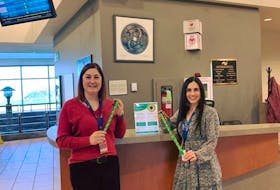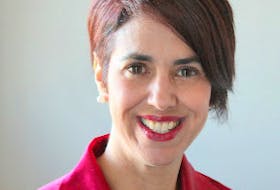While schools across Atlantic Canada are set to reopen next month, the continued uncertainty surrounding COVID-19 has resulted in substantial numbers of parents strongly considering homeschooling their children.
St. John’s, N.L., resident Meghan Stamplecoski has already decided to homeschool. Stamplecoski has two sones, ages six and seven, and believes the Newfoundland school district hasn’t provided adequate information on how things will play out in the classroom.
“It seems as if they are just as unsure about it all, as many parents are, about allowing the children to attend come the fall,” she said.
The Newfoundland and Labrador government’s return-to-school plan mentions various public safety measures, including cohorting to limit mixing of students. The plan, however, states that the daily school routine should not be disrupted to accommodate smaller classes for physical distancing.
Stamplecoski said safety is a major concern for her, and envisions numerous potential scenarios involving exposure to the virus.
She questions how successfully small children will be able to follow social distancing and other regulations, pointing out small children often need help with everyday tasks, such as tying their shoes or zippering their coats.
“Who will help all the children and how will the proper precautions be taken for each child and between each child?”
She’s also concerned for children with special needs who need additional supports that may require them to, for example, take walks in the hallway to help with concentration.
She also suspects many parents will be “dishonest” regarding their child’s symptoms, as those parents have to work and have no other options for childcare.
“I'm sure homeschooling will add to our already hectic and wild days, but I will at least know my children won’t going into what I consider to be a future brewing germ station without a plan in place,” she said.
Undecided
Cindy Partridge of Antigonish, N.S., is still on the fence about homeschooling, but isn’t optimistic about how the school year will unfold.
One of her two daughters has a lung disease, making attending school risky. But all three of her children “love learning,” and she fears her youngest, entering Grade 1, will fall behind if he isn’t able to attend.
Partridge said many aspects of the pandemic response negatively impacted her children’s well-being.
“It’s terrifying for them,” she said. “One day, everything is fine and the next day, they’re not allowed to visit their grandparents, they’re not allowed to play with their neighbours.”
One of Partridge’s top fears is that the ‘new normal’ will create a negative impression of school for her children.
“If (my children) begin to hate learning and see school as something that brings them negative stresses, that’s something that will affect them,” she said. “It’s looking like they won’t be going back (to school) in the fall, and that would break their heart.”
Inquiries up
While no hard numbers exist on how many families may enter homeschooling this year, strong indicators are that inquires, at least, are going up.
Danyelle Gardner, one of the administrators for the Facebook group Homeschoolers of Newfoundland and Labrador, said over 250 new families have joined the group in recent months.
“The majority of interest we’re getting is just from people figuring out what to do in the interim, until whatever this is has settled down some. They’re not looking at it as a lifestyle,” Gardner said.
Cheyanne Gallant, administrator for the Prince Edward Island Secular Home Educators group on Facebook, is also seeing growing interest.
“The phrase ‘unprecedented times’ is ridiculously overused, but very true, and many families are concerned about the reopening of schools, a second wave, community transmission, and so forth,” Gallant said.
Both Gardner and Gallant point out that what took place when students found themselves learning from home is not homeschooling.
“I think the teachers did a fantastic job under a tremendous amount of unexpected stress and with very limited resources,” Gallant said. “It was, however, not home education as we are discussing here. It was a last-minute pivot to deliver public school programming in a crisis.”
And Gardner added, “Parents were literally thrown into it. It was a nightmare, (parents) were losing their jobs. A lot of people equated a lot of that stress with homeschooling, but this is not homeschooling.”
Homeschoolers disrupted, too
Even homeschooling families saw routines suffer as a result of pandemic measures.
Morgan Rigby, who homeschools her daughter in Montague, P.E.I., said while the pandemic didn’t affect her daughter’s education, it did affect other activities that help in building a well-rounded life.
“We visited the library frequently; it’s such a wonderful place to learn and socialize,” Rigby said. “We do miss going to the library for story time, crafts and playing.”
Rigby, a former teacher’s aide, said she knew homeschooling was the right thing for her and her daughter, who is now four.
“Luckily, she’s the type of kid that thrives on this type of education,” she said. “My advice to others considering homeschooling would be that it's a lot of work, so being passionate about educating would be an advantage.”
Gardner, who has homeschooled her children for the past 12 years, hopes homeschooling will now be seen as a valid educational choice for families. She points out that, despite misconceptions that homeschooling is mainly faith-based, secular homeschool curriculums are the fastest-growing demographic.
Gardner, however, is not “waving the flag” for homeschooling, as there are valid reasons for parents to consider other options.
“I have really good friends who are public school teachers. They do an amazing job; they’re great people,” she said. “It is your decision at the end of the day, and you shouldn’t let anyone guilt you into one way or the other.”
Psychological impacts
While many parents are understandably wary about sending their children to school during this pandemic, experts in child psychology insist most children need the socialization and stimulation that school provides.
Helene Deacon, professor with the psychology department at Dalhousie University in Halifax, said there is already evidence of negative psychological effects on children due to lockdowns and school closures. She said the best data has come out of China during that country’s initial lockdown earlier this year; that data showed “much higher” rates of depression and anxiety among children.
“They’re socially isolated from their friends,” she said. “The adults around them are anxious, they’re getting exposure to some scary information.”
Deacon said while lockdowns may initially have been the only logical consequence, she feels there hasn’t been enough of an acknowledgement that quality daycare is an essential component of a re-opened economy.
“I think what we forget is how important kids’ social lives are to them, and how mentally stabilizing routine is for them.”
Deacon says children are quite adaptable if trusted adults present them in a non-frightening way. Her four-year-old daughter has returned to daycare, where the staff are wearing masks to help prevent the spread of the coronavirus.
“She actually wants to wear a mask. It’s a point of pride for her, as she’s imitating a trusted adult.”
Dr. Rhonda Matters, of the Psychological Association of PEI, said homeschooling can work under certain circumstances, such as if the child or family members have health issues, or are part of a cohort of homeschooling families. She’s concerned about the consequences if a family decides to jump into homeschooling specifically because of fear surrounding the coronavirus.
“I’m concerned about what message that sends to the child,” she said. “(The message) is that it’s not safe to go back, it’s not going to go back to normal.”
She adds that homeschooling takes “a lot of time, effort and skill,” and the question that would need to be answered is what those parents have at their disposal to meet their child’s needs.
A return to school, friends and structure is “certainly a positive step,” and the message that needs to be sent is that there are things we can do to manage this new normal, and that it should offset some of the anxiety.
“Things are different, but we know how to handle this; we are flexible. We wash our hands, cough into our elbows, stay six feet from people.”
Back in Newfoundland, Stamplecoski plans to be busy, as she will soon start maternity leave with her fourth child later this fall, but she’s looking forward to it.
“I’ll happily be getting involved and more hands-on with craft time, science experiments, adventures outside in trails and so forth,” she said.
She’s also confident her children will get much-needed socialization as well in the homeschool setting. She’s part of a ‘bubble’ with other parents with children of similar ages – families she says follow the same social distancing measures and precautions her family does.
“We have planned days when our children will come together and play together,” Stamplecoski said. “We can monitor the interactions between them safely, as the number of children grouped together at (one) time is far smaller than what will take place in a classroom.”
A spokesperson for Newfoundland and Labrador English School District said homeschool coordinators in all regions of the district have received a “significant increase” in inquiries regarding the application process and available resources. A spokesperson for the Nova Scotia Department of Education and Early Childhood Development said there would be “a very small number of children” not be able to attend school this year, and parents have the option to register for homeschooling.









